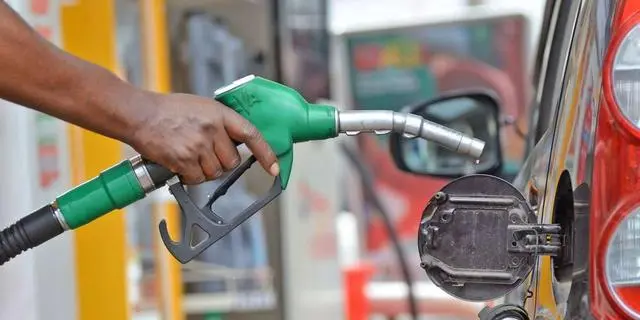The Nigerian oil and gas sector is facing growing uncertainty as stakeholders await the Federal Government’s decision on the naira-for-crude agreement between the Nigerian National Petroleum Company Limited (NNPCL) and the Dangote Petroleum Refinery. The six-month deal, which began in October 2024, officially ends today, March 31, 2025, and discussions on its renewal or termination remain unresolved.
Reports indicate that the committee handling the negotiations has yet to reach a conclusion, leading to a significant impact on fuel prices. Within a week, petrol prices have surged from approximately N860 per litre to over N930 per litre, with dealers attributing the increase to the uncertainty surrounding the agreement. Some marketers predict that prices may soon reach N1,000 per litre if the deal is not renewed.
Adding to the challenges, the Dangote refinery is expected to shut down its petrol production unit for maintenance in June, a process that could last 30 days, according to Reuters. Meanwhile, an insider at the finance ministry disclosed that no progress had been made in the naira-for-crude negotiations, as no meetings took place last week.
The naira-for-crude initiative was introduced on October 1, 2024, to improve local fuel supply, reduce Nigeria’s dependence on imported petroleum products, and stabilize pump prices. Under the deal, NNPCL supplied 48 million barrels of crude oil in naira to the Dangote refinery, with a total of 84 million barrels delivered since the facility began operations in 2023.
However, on March 19, the Dangote refinery announced a temporary halt to selling petroleum products in naira, citing a misalignment between its sales proceeds and crude purchase obligations, which are denominated in US dollars. The refinery stated that while it had sold fuel in naira, the crude it received under the agreement had not been sufficient to cover its costs.
Following this announcement, the price of petrol at private depots in Lagos jumped from under N850 to around N900 per litre. Industry sources suggest that NNPCL’s difficulties in supplying crude for the domestic market stem from using large volumes of yet-to-be-produced oil to secure loans from international lenders. Consequently, retail fuel prices have risen to N930 in Lagos, N950 in Abuja, and N960 in northern states.
Despite optimism among some stakeholders that a resolution will be reached, uncertainty continues to grip the industry. The Independent Petroleum Marketers Association of Nigeria (IPMAN) has blamed the Federal Government’s reluctance to renew the agreement for the recent fuel price surge. IPMAN’s Vice President, Hammed Fashola, warned that if the naira-for-crude deal is not reinstated, petrol prices could exceed N1,000 per litre.
Industry players also criticized depot owners for capitalizing on the uncertainty to increase prices, with Fashola calling for greater patriotism among petroleum marketers. He emphasized that while international market conditions and exchange rates influence fuel prices, a renewed naira-for-crude deal could have helped stabilize them.
As the nation grapples with rising fuel prices and increased transportation costs, stakeholders are calling for urgent government intervention. IPMAN has scheduled a meeting for May 1, 2025, to discuss the situation, with hopes that a revised agreement could offer relief to consumers and prevent further economic strain.









